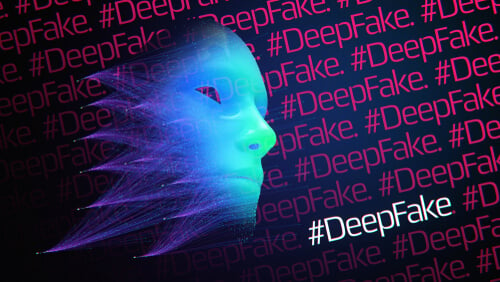This is Part 2 of a three-part series tackling the topic of generative AI tools. This second installment is "Safeguarding Ethical Development in ChatGPT and Other AI Tools through a Holistic Approach: Integrating Security, Governance, and Psychological Considerations."
In the realm of generative AI tools, such as Language Learning Models (LLMs), it is essential to take a comprehensive approach toward the development and deployment. Three key elements require our attention: security measures, psychological considerations, and governance strategies. By carefully examining the dynamic interactions among these elements, we can highlight the significance of a comprehensive approach that integrates resilient security measures and fosters ethical behavior, user trust, and risk mitigation.
Let's discuss the second key element, Psychological Considerations.
We will explore the intricate interactions between security and the human element by diving into the complexities of psychological considerations. These include aspects such as: user trust, ethical behavior, privacy, biases in Language Learning Models (LLM) programming, and more.
In the realm of user trust, especially within the U.S., the stakes have never been higher. When we talk about those "in charge," whether it's a corporate board, a government entity, or executive leadership, the responsibility to uphold that trust is imperative. But here's the thing: humans are, by nature, impressionable. So, what's your personal bar for trust? The answer is, undoubtedly, personal and varies for everyone.
As we navigate the complexities of data privacy, misinformation and cybersecurity, the emphasis on trust has become paramount. When we dive into discussions about the guardians of that trust—be it the strategic minds behind a corporate board, the regulatory strength of government agencies, or the visionary force of executive leadership—the weight of responsibility they carry is undeniable.
Yet, an underlying challenge exists. Humans, with all our intricacies, are inherently susceptible to influence, be it through persuasive narratives, emotional triggers, or the sheer overload of information. This brings forth a fundamental question: at what point do you place your faith in these custodians of information and decision-making? The threshold of trust is not a one-size-fits-all measure. For each individual, it's shaped by experiences, beliefs, and personal values, making it a unique and deeply personal metric. This fluctuation underscores the importance of transparency, accountability, and genuine engagement from those at the Head of Dragon... oops, I meant Kingdom.
In retrospect, we are all drawn to the shiny and new, the alluring and enigmatic. This is perhaps why, even today, phishing remains a top threat to businesses. In fact, the FBI's 2021 Internet Crime Report highlighted the staggering success of phishing and its variations (e.g., vishing, smishing, and pharming). The Bureau fielded nearly 20,000 complaints leading to an alarming $2.4 billion in losses in that year alone.
As technology leaders, people count on our unwavering commitment to their safety. We cannot just duck behind the legitimate issues of LLMs tools and their developments. When it comes to evolving AI platforms like ChatGPT, Google Bard, and DALL·E, yes, security is essential and so is integrating a human-centric approach. An approach that also weighs the psychological outcomes (e.g., user trust) is not just insightful, it is ethically essential.
Therefore, can society trust technology leaders to ensure there's room for both advanced innovation as well as education and training? Leaders should consider how LLMs and other AI-driven tools will gradually alter job roles. Echoing Part I of this series on "Practical Security Measures," it's imperative for us as technologists to recognize the impending talent shortages present and future to highlight the organizational repercussions if not addressed.
Be bold! Staying ahead of the curve of AI technologies may appear to be a daunting task, but facing the inevitable head on is a necessity for future readiness and sustainable growth. My prediction: organizations that will thrive in this ever-evolving AI ecosystem will balance the scale. They will adopt innovative methods to ensure the existing and future workforce gains the knowledge and experience necessary to sustain their growth and competitive edge.
As previously argued, AI's LLMs have undeniably demonstrated their immense value to organizations and individual consumers, as they are purposefully designed to communicate with humans in the most natural format possible. Nevertheless, these designs are not impervious to flaws, primarily attributed to the human element involved in their creation. Individual biases may inadvertently find their way into a developer's code. Remarkably, this scenario bears a striking resemblance to the challenges faced by developers (writers in this instance) of institutional "entrance exams."
Hiccups are not intentional, they are organic. So, let's not fool ourselves into thinking that human biases are all unintentional. Yes, sometimes they can be, but considering the complexities and implications of such design imperfections, this requires additional exploration. We, the technologists, can address these complexities with the assistance of industry partners (e.g., psychologists, sociologists, and linguists), and by forming best practices that ensure the effective development and use of LLMs in AI technologies.
Zara Abrams, writer for the American Psychological Association, produced a compelling article, "The promises and challenges of AI," in November 2021, where she cites a sociologist on the very subject of human bias and how explicit or implicit bias can be ingested into LLMs's code:
"'Algorithms are created by people who have their own values, morals, assumptions, and explicit and implicit biases about the world, and those biases can influence the way AI models function,' said Nicol Turner-Lee, Ph.D., a sociologist, and director of the Center for Technology Innovation at the Brookings Institution in Washington, D.C.
Furthermore, developers will inevitability encounter "algorithmic bias," coined by AI Pioneer Joesph Weizenbaum in his 1976 book, "Computer Power and Human Reason," which suggested that bias could arise both from the data used in a program and from the way a program is coded. As Abrams simply describes in her article, it is "when models make biased predictions because of limitations in the training data set or assumptions made by a programmer."
In 2019, there was an instance of algorithmic bias, when researchers identified a bias in a predictive algorithm used by UnitedHealth Group, (Dissecting racial bias in an algorithm used to manage the health of populations | Science). The algorithm used healthcare spending to gauge illness, thereby inadvertently causing inequities to disadvantaged Black patients in receiving proper care.
While there are a few psychologists, sociologists, and linguists who are heavily involved with some OpenAI developments, presently only a minor percentage of this expertise is engaged. Larger developments like OpenAI and Google Bard have leveraged behavioral and language experts to assist in minimizing bias development. The concern lies with smaller organizations which are presently producing new LLM tools without the support or understanding of psychological, sociological, or ethical considerations.
The issue here is explicit and implicit biases. The natural element of human personality is DNA; it lies deep within our cultural and emotional intelligence. Understanding this is a precursor to safe and effective AI developments.
Addressing innovation fears is like trying to catch a fish with bare hands, especially when dealing with human consumers; it's challenging, but not impossible. In this present landscape where privacy is a necessity, organizations and individuals are constantly in the crosshairs, facing both digital and psychological ambushes. Given this backdrop, wouldn't it be prudent to harness our psychological assets to protect against these new and emerging threats to ChatGPT and other AI-driven tools?
Consider this: by diving into behavioral analysis, we can gain a deeper understanding of user behavior, the dynamics of human-AI interactions, and the broader ethical and societal impacts of AI. But are we addressing fears head on? While developers often lean on mathematical validations to ensure their LLMs are making accurate predictions about societal realities, undeniably "Privacy" is an integral of this.
Privacy is not just about safeguarding data, it's also about safeguarding our emotional well-being. In turn, behavioral or cultural analysis can be beneficial to assess the developer's threshold of psychological, sociological, and cultural experiences outside of their own. By using these methodologies, developers can improve the design and functionality of AI learning models to create a more positive and productive human-AI interaction.
To reiterate, a holistic approach should be considered when addressing psychological aspects such as trust, ethics, privacy, and biases, for ethical AI development. Sustainable growth in this area demands collaboration among technologists, psychologists, sociologists, and linguists. Here are some considerations and recommendations to explore.
Psychological considerations for ethical AI development
1. User trust
Trust is highly personal and varies among individuals, influenced by experiences, beliefs, and personal values. How AI platforms interact, deliver information, and ensure transparency will greatly affect the level of trust users place in them.
2. Susceptibility to influence
Humans are inherently impressionable, often influenced by narratives, emotional triggers, or information overload. AI must navigate these intricacies responsibly.
3. Potential for bias
Both explicit and implicit biases can inadvertently find their way into AI models, reflecting the biases of their creators and the data they're trained on.
4. Privacy as emotional well-being
Beyond just data protection, privacy also encompasses the protection of users' emotional and psychological space.
5. Innovation fears
As AI technologies evolve and become more integrated into our lives, they might spark fears or concerns among users regarding their implications on privacy, job security, and societal norms.
Recommendations for ethical AI development
1. Enhanced collaboration
Foster partnerships between technologists and experts from fields like psychology, sociology, and linguistics to ensure a well-rounded development approach that integrates different perspectives.
2. Bias detection and mitigation
Introduce rigorous checks and assessments to detect and counteract potential biases in AI tools, using both technological and human-centric methods.
3. User-centric education
Develop training and educational resources that familiarize users with the potentials and limitations of AI tools, helping them navigate and use these tools confidently and safely.
4. Transparency and accountability
AI developers and platforms should prioritize transparency in their operations, data usage, and decision-making processes. This not only builds trust but also holds platforms accountable.
5. Behavioral analysis integration
Harness behavioral analysis techniques to gain insights into user behavior, ensuring that AI models are tailored to real-world societal dynamics, and are psychologically and culturally sensitive.
In the third and final installment of this series, we will explore navigating in the AI's LLM waters with the presence of governance circling, to ensure ethical and responsible utilization. Watch for it on August 21. Here is Part 1.
~~~
About the author:
Kimberly "KJ" Haywood, Principal Advisor, Nomad Cyber Concepts; Adjunct Cybersecurity Professor, Collin College, will be part of the opening keynote panel at SecureWorld Dallas on October 26, on the topic of "Implications of ChatGPT and Other Similar AI Tools." She will be joined by Shawn Tuma, Co-Chair, Data Privacy & Cybersecurity Practice, Spencer Fane, LLP; Larry Yarrell, II, Chief Development Officer, Diversity & Inclusion Program Development, The Marcus Graham Project; and moderator Michael Anderson, Deputy CTO & CISO, Dallas Independent School District.





